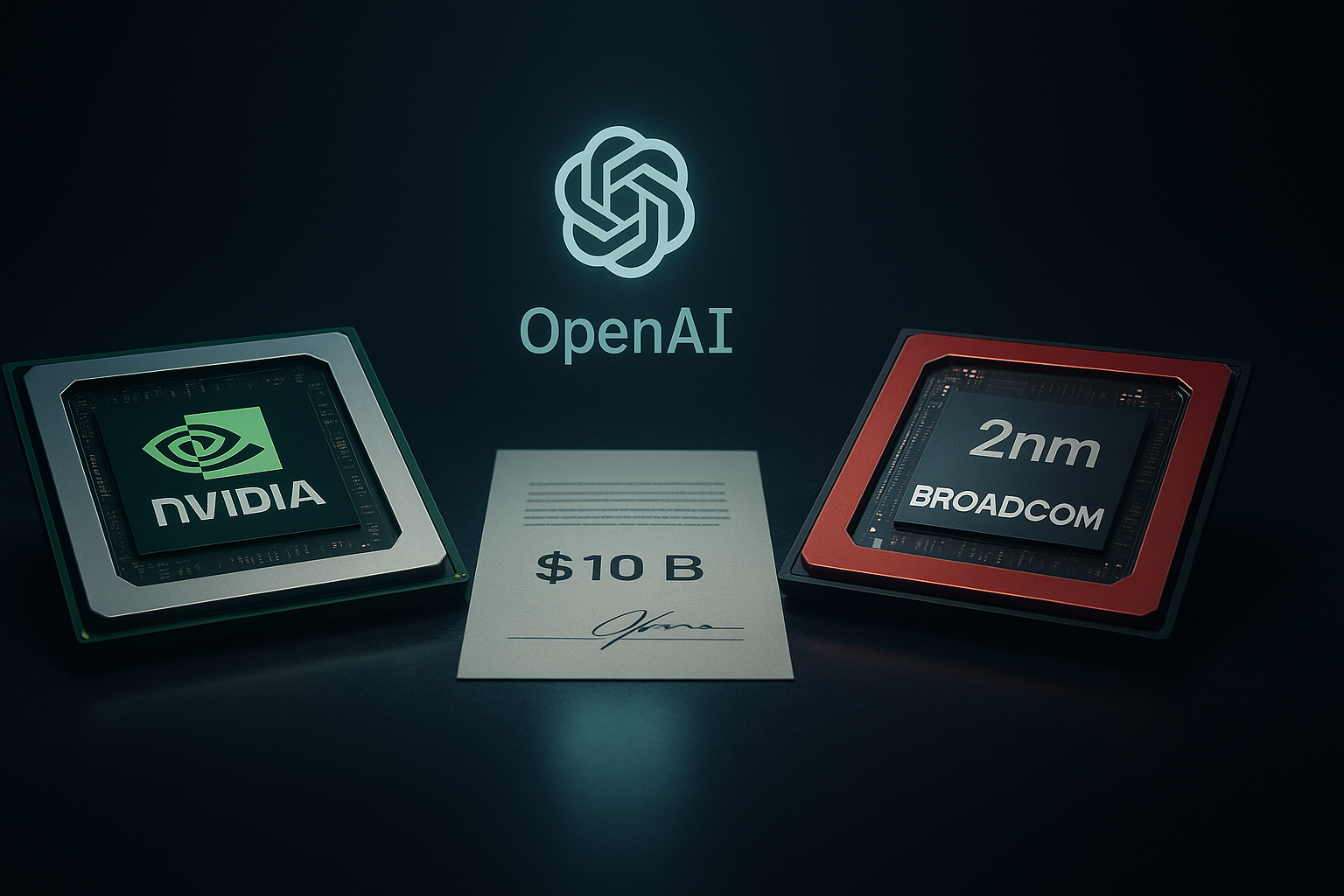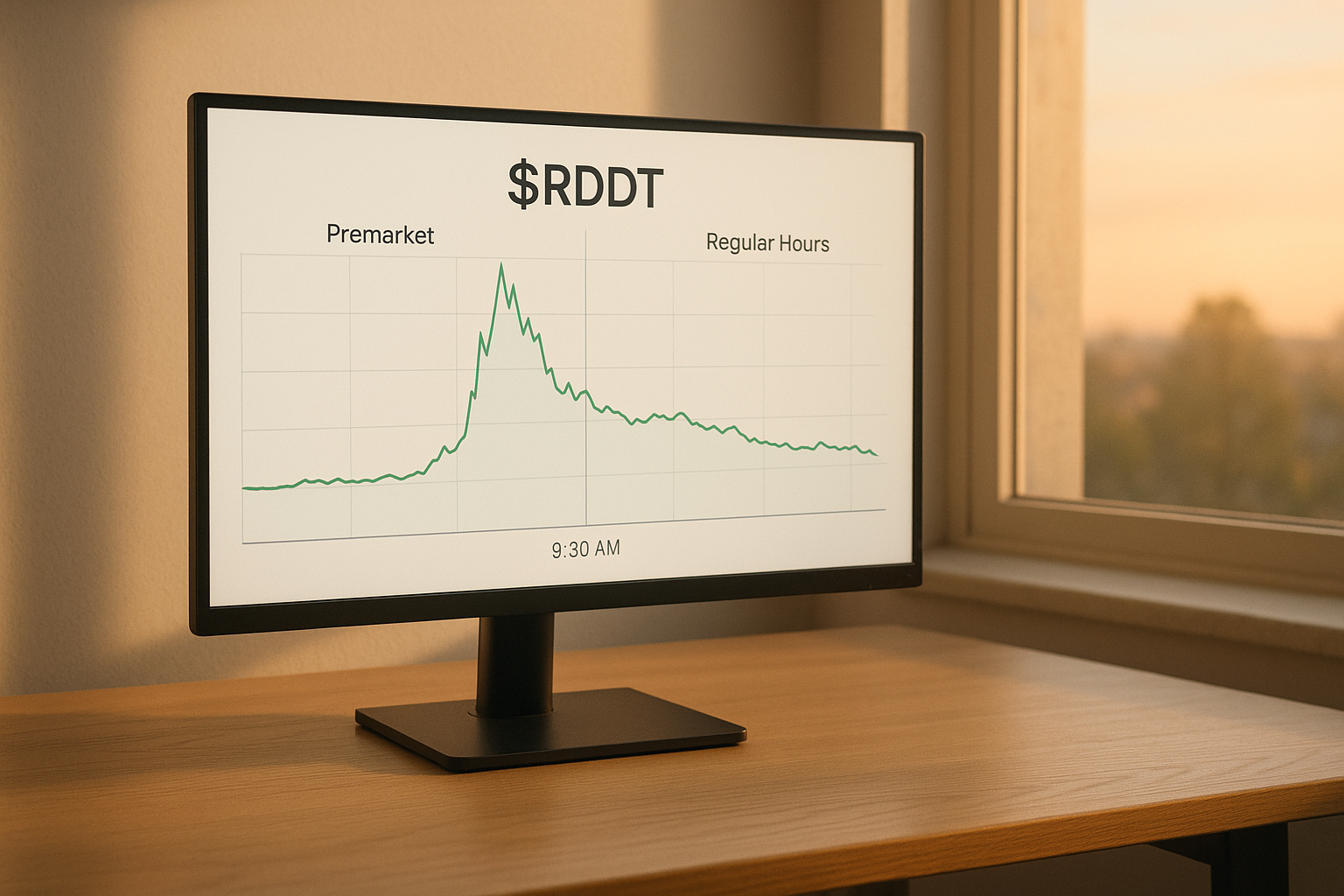The semiconductor industry's most intriguing chess match just got a whole lot spicier.
Broadcom has decided to go big—really big—by reportedly striking a $10 billion deal with OpenAI while simultaneously unveiling plans for cutting-edge 2nm AI chips. It's the kind of power move that finally gives Nvidia something to sweat about in a market they've dominated with almost embarrassing ease.
I've been covering the semiconductor space for years, and this feels different from previous "Nvidia killers" that arrived with fanfare only to fade into obscurity. There's substance here.
Look, we all know the Nvidia story by now. Jensen Huang and his iconic leather jacket have become the face of the AI revolution, with the company's market cap swelling to astronomical heights that would have seemed laughable just three years ago. Their GPUs power virtually every significant AI model being built, and their CUDA software ecosystem has created a moat that's been nearly impossible for competitors to cross.
But monopolies make people nervous. They make customers nervous. They make markets nervous.
And that's precisely where Broadcom sees its opportunity.
What makes this play particularly fascinating (and potentially viable) is the two-pronged approach. The OpenAI deal isn't just about revenue—though $10 billion is nothing to sneeze at. It represents validation from arguably the most important AI company on the planet. OpenAI doesn't exactly make hardware decisions on a whim. Their computational needs are staggering, and every performance percentage point matters to their bottom line.
Then there's the 2nm chip announcement.
For those who don't obsess over semiconductor manufacturing processes (unlike yours truly), we're currently in the 4nm-5nm generation, with 3nm just starting to appear in limited applications. A legitimate 2nm AI accelerator would represent a significant technological leap forward—think better power efficiency, higher performance density, and improved thermal management. All crucial factors when you're building chips for systems that consume electricity like a college freshman with an unlimited meal plan.
"The jump to 2nm isn't just about bragging rights," a semiconductor analyst told me last week over coffee. "It's about solving the fundamental physics problems that are holding back AI development." (He requested anonymity because he wasn't authorized to speak publicly about Broadcom's plans.)
Can they pull it off? That's the multi-billion-dollar question.
Designing advanced chips is hard enough; manufacturing them at scale is a whole different ballgame. TSMC will likely be Broadcom's manufacturing partner here, and their fabs are already running hot with orders from Apple, Nvidia, AMD, and others. Securing enough production capacity could prove challenging.
But here's where Broadcom's strategy gets interesting. They don't need to completely dethrone Nvidia to win big. If their chips can deliver 80% of the performance at 60% of the cost, that's more than enough to capture significant market share—especially for applications where good-enough AI acceleration at the right price point makes more business sense than bleeding-edge performance at premium prices.
The timing couldn't be better. We're still in the early stages of the great AI infrastructure buildout, with hundreds of billions in capital expenditures planned over the next decade. Capturing even 15-20% of this expanding market would transform Broadcom's growth trajectory.
There's also the customer angle to consider. AWS, Microsoft Azure, and Google Cloud have been forced to pay whatever price Nvidia demands (and wait in line for shipments) because they simply had no viable alternatives. A credible second source gives them negotiating leverage and potentially better economics for their AI investments.
I spoke with several cloud infrastructure executives at a recent industry conference who expressed exactly this sentiment. "We love competition," one told me with a knowing smile.
Markets have a way of finding equilibrium. Intel's x86 dominance eventually faced real competition from AMD. Qualcomm's mobile chip stronghold has been challenged by Apple and MediaTek. Even the most defensible positions eventually face legitimate threats.
Is Broadcom's ambitious play guaranteed to succeed? Of course not.
But for the first time since the AI compute explosion began, it appears Nvidia has a challenger with both the technical capabilities and strategic relationships to mount a credible challenge. And regardless of who ultimately comes out on top, the competition will benefit the entire AI ecosystem through better pricing, faster innovation, and a more diverse supply chain.
In the end, isn't that how capitalism is supposed to work?




